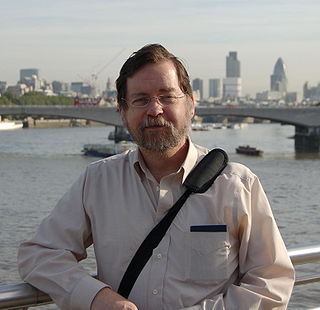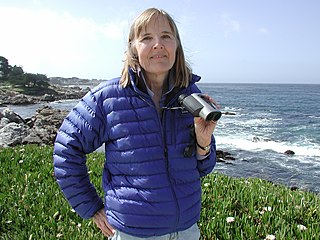
PLOS is a nonprofit publisher of open-access journals in science, technology, and medicine and other scientific literature, under an open-content license. It was founded in 2000 and launched its first journal, PLOS Biology, in October 2003.

The National Zoological Park, commonly known as the National Zoo, is one of the oldest zoos in the United States. The zoo is part of the Smithsonian Institution and does not charge admission. Founded in 1889, its mission is to "provide engaging experiences with animals and create and share knowledge to save wildlife and habitats".
Karl Shuker is a British zoologist, cryptozoologist and author. He lives in the Midlands, England, where he works as a zoological consultant and writer. A columnist in Fortean Times and contributor to various magazines, Shuker is also the editor-in-chief of the Journal of Cryptozoology, which began in November 2012.

The Arakan forest turtle is a critically endangered turtle species native to the Arakan Hills in western Myanmar and the bordering Chittagong Hill Tracts in Bangladesh. The Arakan forest turtle is a semiterrestrial turtle, meaning it can survive in aquatic as well as terrestrial habitats, but adults prefer living in terrestrial habitats.

The Smithsonian Conservation Biology Institute (SCBI) is a unit of the Smithsonian Institution located on a 3,200-acre (13 km2) campus located just outside the town of Front Royal, Virginia. An extension of the National Zoo in Washington, D.C., the SCBI has played a leading role in the fields of veterinary medicine, reproductive physiology and conservation biology since its founding in 1974.

Darren William Naish is a British vertebrate palaeontologist, author and science communicator.
Nicholas J. Matzke is the former Public Information Project Director at the National Center for Science Education (NCSE) and served an instrumental role in NCSE's preparation for the 2005 Kitzmiller v. Dover Area School District trial. One of his chief contributions was discovering drafts of Of Pandas and People which demonstrated that the term "intelligent design" was later substituted for "creationism". This became a key component of Barbara Forrest's testimony. After the trial he co-authored a commentary in Nature Immunology, was interviewed on Talk of the Nation, and was profiled in Seed as one of nine "revolutionary minds".

Dame Georgina Mary Mace, was a British ecologist and conservation scientist. She was Professor of Biodiversity and Ecosystems at University College London, and previously Professor of Conservation Science and Director of the Natural Environment Research Council (NERC) Centre for Population Biology, Imperial College London (2006–2012) and Director of Science at the Zoological Society of London (2000–2006).

Paul Zachary Myers is an American biologist who founded and writes the Pharyngula science blog. He is associate professor of biology at the University of Minnesota Morris (UMM) where he works in the field of developmental biology. He is a critic of intelligent design and the creationist movement and other pseudoscientific concepts.

Scott Joel Aaronson is an American theoretical computer scientist and Schlumberger Centennial Chair of Computer Science at the University of Texas at Austin. His primary areas of research are computational complexity theory and quantum computing.

ZooBorns is a zoology news blog and book line that announces animal births at AZA, EAZA, CAZA, ZAA, and WAZA accredited zoos and aquariums. ZooBorns was founded in 2008 with the mission to "educate while it entertains", and typically shares related conservation information along with pictures and video of baby animals.
Science 2.0 is a suggested new approach to science that uses information-sharing and collaboration made possible by network technologies. It is similar to the open research and open science movements and is inspired by Web 2.0 technologies. Science 2.0 stresses the benefits of increased collaboration between scientists. Science 2.0 uses collaborative tools like wikis, blogs and video journals to share findings, raw data and "nascent theories" online. Science 2.0 benefits from openness and sharing, regarding papers and research ideas and partial solutions.
Derek Lowe is a medicinal chemist working on preclinical drug discovery in the pharmaceutical industry. Lowe has published a blog about this field, "In the Pipeline", since 2002 and is a columnist for the Royal Society of Chemistry's Chemistry World.

Richard Shine is an Australian evolutionary biologist and ecologist; he has conducted extensive research on reptiles and amphibians, and proposed a novel mechanism for evolutionary change. He is currently a Professor of Biology at Macquarie University, and an Emeritus Professor at The University of Sydney.
Skeptical Science is a climate science blog and information resource created in 2007 by Australian former cartoonist and web developer, John Cook, who received a PhD degree in cognitive science in 2016. In addition to publishing articles on current events relating to climate science and climate policy, the site maintains a database of articles analyzing the merit of arguments put forth by those who oppose the mainstream scientific opinion on climate change.

Pamela Christine Ronald is an American plant pathologist and geneticist. She is a professor in the Department of Plant Pathology and conducts research at the Genome Center at the University of California, Davis and a member of the Innovative Genomics Institute at the University of California, Berkeley. She also serves as Director of Grass Genetics at the Joint BioEnergy Institute in Emeryville, California. In 2018 she served as a visiting professor at Stanford University in the Center on Food Security and the Environment.
Asian Scientist is an English language science and technology magazine published in Singapore.

Katherine S. Ralls is an American zoologist and conservationist who is Senior Research Zoologist Emerita at the Smithsonian Conservation Biology Institute, National Zoological Park. Ralls' research interests are in the behavioral ecology, genetics, and conservation of mammals, both terrestrial and marine. Since 1980, she has focused on conservation biology, especially the genetic problems of small captive and wild populations.
Speculative evolution is a subgenre of science fiction and an artistic movement focused on hypothetical scenarios in the evolution of life, and a significant form of fictional biology. It is also known as speculative biology and it is referred to as speculative zoology in regards to hypothetical animals. Works incorporating speculative evolution may have entirely conceptual species that evolve on a planet other than Earth, or they may be an alternate history focused on an alternate evolution of terrestrial life. Speculative evolution is often considered hard science fiction because of its strong connection to and basis in science, particularly biology.
Danielle N. Lee is an American assistant professor of biology at Southern Illinois University Edwardsville, best known for her science blogging and outreach efforts focused on increasing minority participation in STEM fields. Her research interests focus on the connections between ecology and evolution and its contribution to animal behavior. In 2017, Lee was selected as a National Geographic Emerging Explorer. With this position Lee traveled to Tanzania to research the behavior and biology of landmine-sniffing African giant pouched rats.











